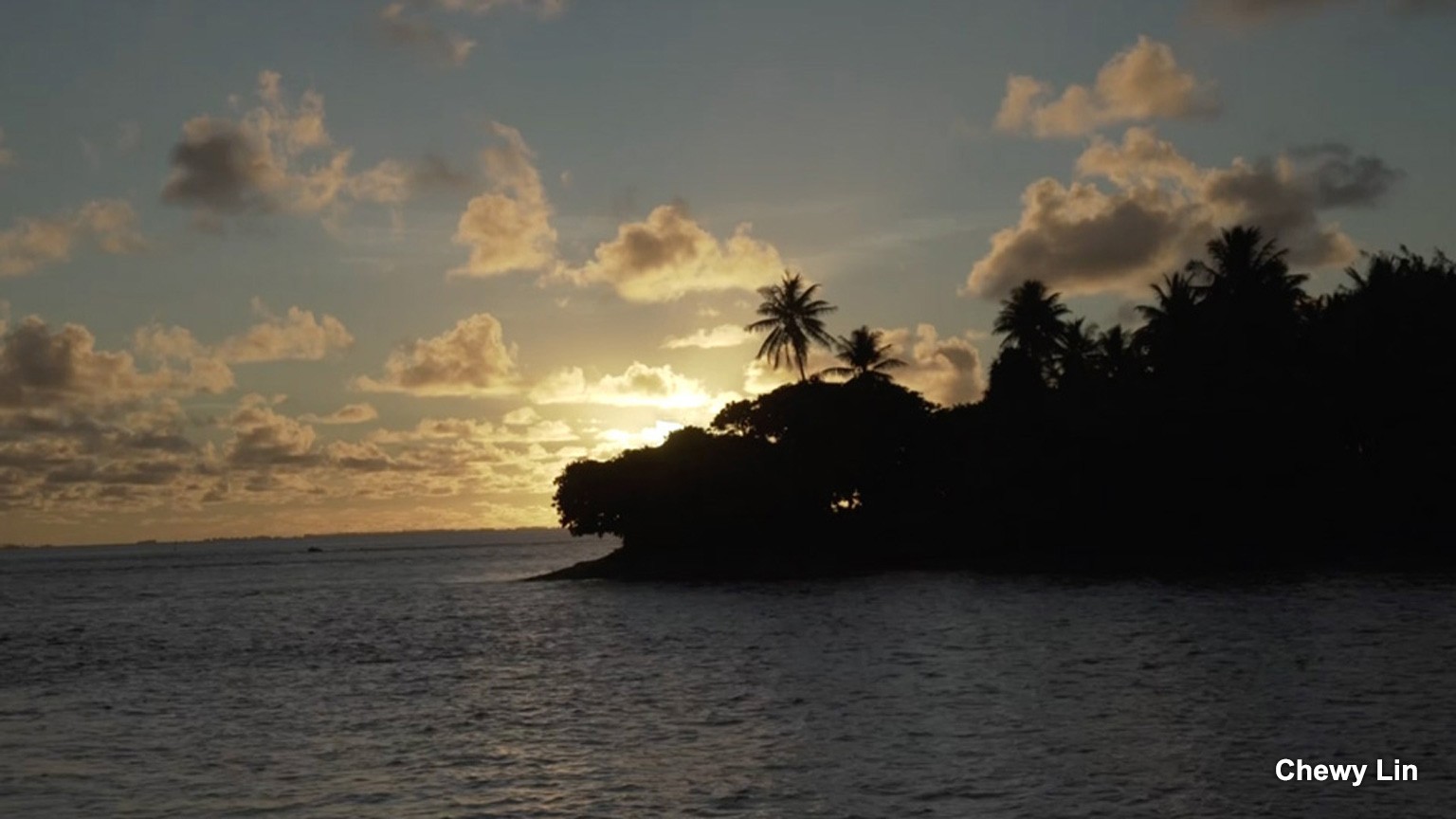Between 1946 and 1958, the US government used the coral atolls spread across the islands as a testing ground for 67 nuclear bombs.
Students on the islands are using software to colorize images from the time to better preserve the memory.
"Many people don't know about the testing," one girl tells NHK. "It's important to keep a record. Colorizing the pictures lends them a greater emotional resonance."
Professor Watanave Hidenori, an expert in digital archiving at the University of Tokyo, is helping oversee the project. He and a group of researchers have been working with high school and college students to collect old photographs and witness testimony, with a view to assembling it all on a digital map that they plan to share online.
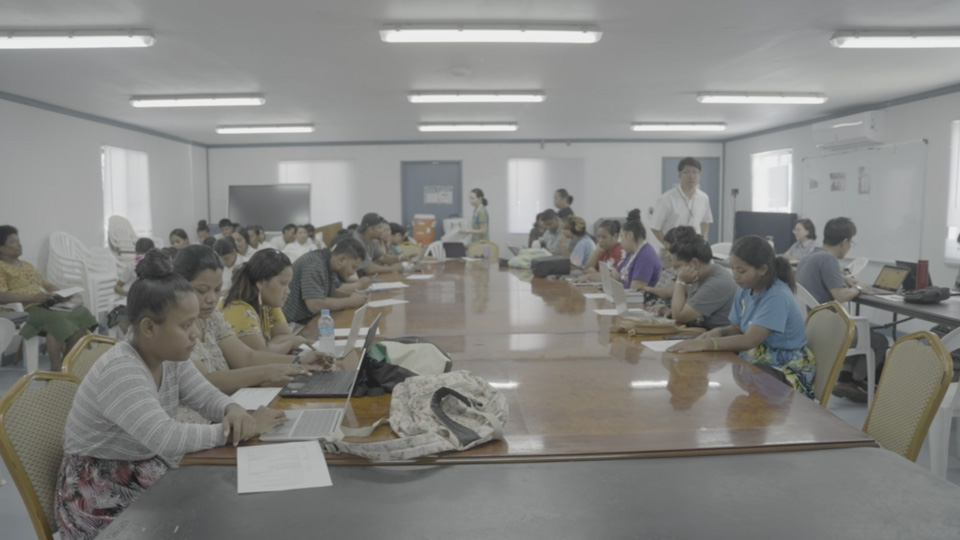

The professor worked on similar projects for Hiroshima and Nagasaki that involved archiving testimony of atomic bomb survivors, known in Japan as hibakusha.
He says those projects and the work he's doing now in the Marshall Islands have taken on extra significance since Russia started threatening to use nuclear weapons against Ukraine: "I want people to think about what they can do to prevent such tragedies from happening again."
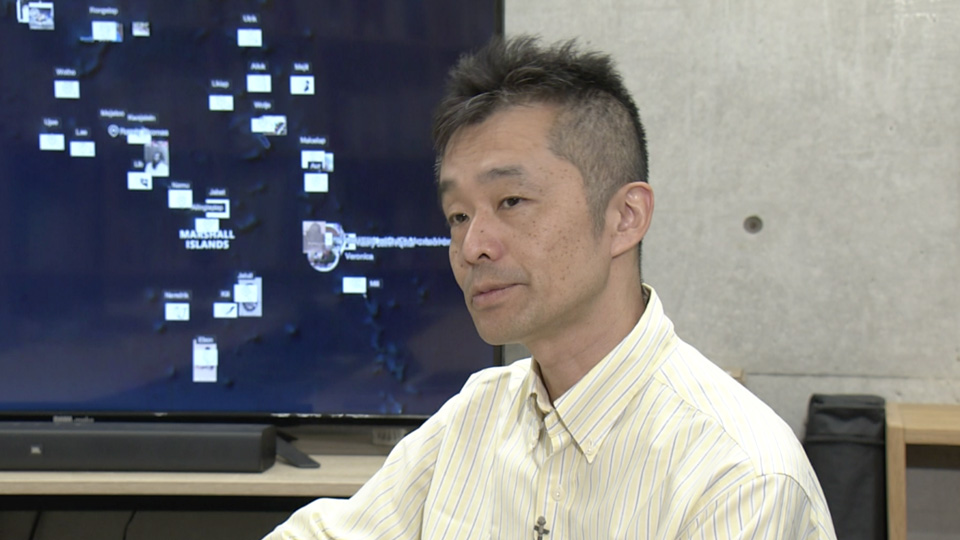
The biggest nuclear test conducted by the US in the Marshall Islands — codenamed Bravo — took place in the Bikini Atoll, on March 1, 1954.
Although most of the islanders were forced to leave their homes for the test, they were still exposed to the radioactive fallout. In the years that followed, many people became sick, and there was a documented rise in thyroid cancer and other disorders.
Decades later, the residents of the islands face a new threat — this time in the form of climate change. A 2021 World Bank report projected that rising sea levels will eventually endanger 40 percent of the buildings in the capital, Majuro, and expose 96 percent of the city to the risk of frequent flooding.
The islanders are pushing for action. They say bigger countries should be doing more to reduce emissions. Kathy Jetnil Kijiner, a local poet, spoke at the opening ceremony of the UN climate summit in New York in 2014. She recited a poem — Dear Matafele Peinem — that was addressed to her daughter, who was 7 months old at the time, and spoke about the existential threat to the Pacific Islands.
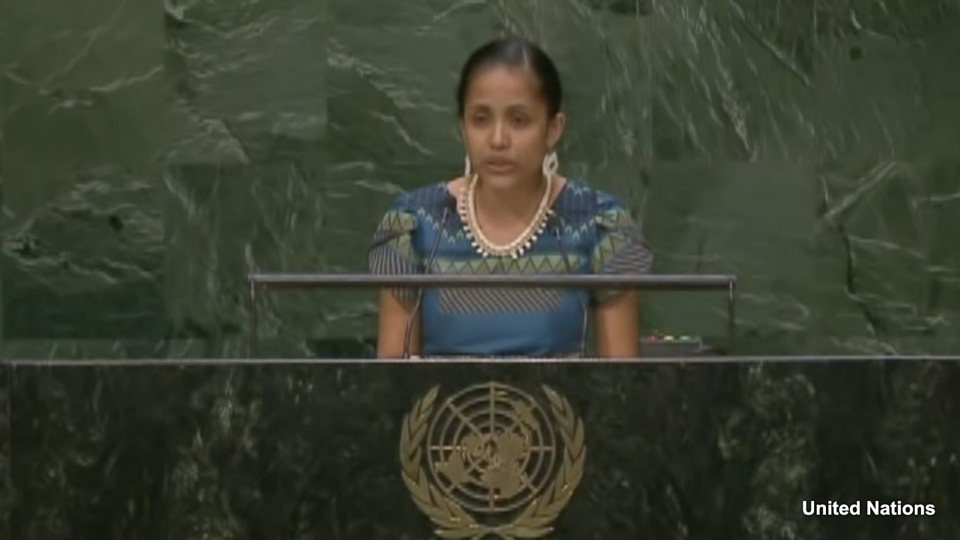
The poem reads:
no one's drowning, baby
no one's moving
no one's losing
their homeland
no one's gonna become
a climate change refugee
or should I say no one else.
Her first book of poetry, Iep Jaltok: Poems from a Marshallese Daughter, was translated into Japanese this March.
"I'd like people in Japan to have a chance to enjoy some of my poetry, or learn a little bit about one perspective from my country, the Marshall Islands," Kijiner tells NHK.
"The book engages with different topics that are really important to me — climate change and the legacy of nuclear testing. I think that there's some intersections between what we have experienced and what Japanese people have experienced."
Just as they did decades ago, the people of the Marshall Islands once again feel they are being seen by the rest of the world "as disposable," she says.
"Nuclear testing had nothing to do with our safety as Marshallese people," she says. "It was the United States deciding to test in our country because they felt that it was far away from who? ... We have already lost islands, we've lost islands through the nuclear legacy, and so we know the pain of losing islands."
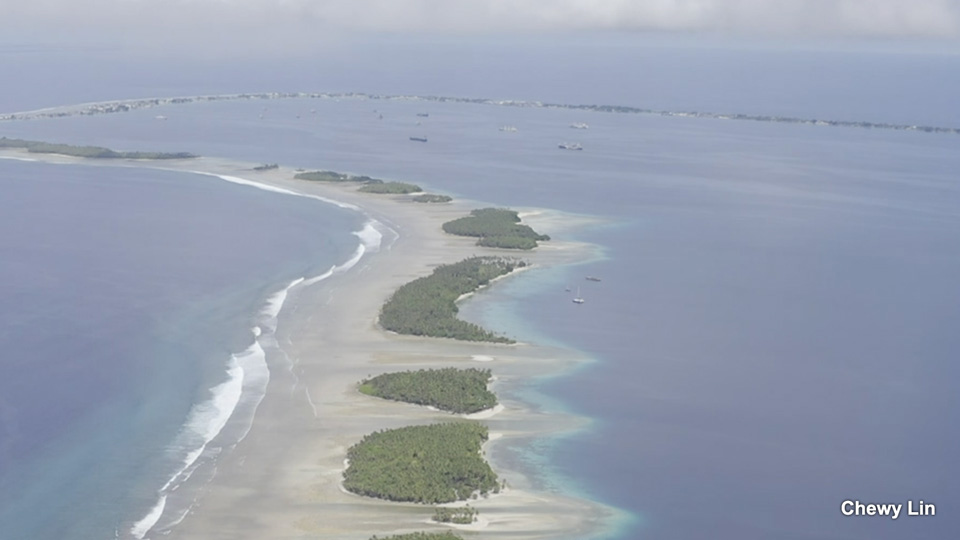
Kijiner says very little has changed between the era of the nuclear tests and today. The Marshallese people, she says, are still being ignored.
"The same thing is happening with climate change, where people are telling us, well, you just have to move."
